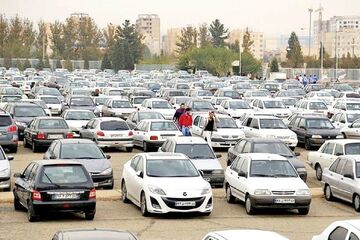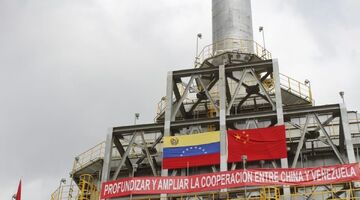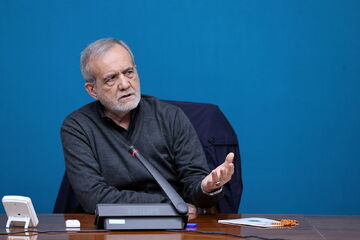TEHRAN(Bazaar) – Professor of Political Science at the Norwegian University of Science and Technology says “The US can’t afford to mobilise the amount of resources needed to compete with China on this terrain, and moreover it is likely to make overly-binding demands on developing countries.”
“As for the other G7 members, my impression is that they have signed up to this agreement more out of complacency than because they really believe in it,” Francesco Boldizzoni tells the Bazaar in an exclusive interview.
Following is the full text of the interview:
Francesco Boldizzoni is Professor of Political Science at the Norwegian University of Science and Technology and the author of two books about economic and intellectual history, The Poverty of Clio: Resurrecting Economic History and Means and Ends: The Idea of Capital in the West, 1500–1970.
Bazaar: In foreign policy, China focuses on economic development. Meanwhile, the United States is trying to involve China in geopolitical conflicts. Do you think America will be able to do that?
Boldizzoni: It will be up to the Chinese leaders, who rarely act on impulse, to prevent this from happening. I think it is in their interest not to respond to provocations that are a sign of the weakness of those making them.
Bazaar: The important argument about China's economic development is that, contrary to the liberal model, it has achieved economic development without following the path of political development. Some believe that China will face serious problems in the future due to the lack of political development, and that the demands of the Chinese people will enter the phase of political development. What is your prediction?
Boldizzoni: The concept of political development is a slippery one. In the 1960s American political scientists thought that economic development would bring liberal democracy everywhere, and after the fall of the Berlin Wall they had the opportunity to test this theory, which turned out to be wrong. The fact is that there is no single model of political development, just as there is no single model of economic development. To claim the contrary only serves an anxiolytic function for those who fear the rise of new geopolitical players. Add to this the fact that, under political regimes that like to call themselves developed, there is growing dissatisfaction with a democratic praxis that people see as reduced to mere competition between parties or between rival elites. Can existing democracies really be called such when they exclude most citizens from active political participation?
Bazaar: At a recent G7 summit, Western leaders approved a budget to encourage developing countries to trade with the West and keep them away from China. Can this solution hinder China's “One Belt-One Road” project?
Boldizzoni: I don't think so. If that is Joe Biden's intention, he is deluding himself. The US can’t afford to mobilise the amount of resources needed to compete with China on this terrain, and moreover it is likely to make overly-binding demands on developing countries. Why should they accept such conditions when they have an alternative? As for the other G7 members, my impression is that they have signed up to this agreement more out of complacency than because they really believe in it. They have other priorities. Italy, for example, changes its foreign policy line at the same speed as it changes its governments. Two years ago, under a different government, it itself became part of the Belt and Road Initiative. I well remember how President Xi Jinping was received with great pomp and circumstance in Rome, arousing the ire of Washington.
Bazaar: Russia's new security doctrine has an important role to play in relations with China. Given the cooperation between the two countries, it seems that Russia and China, despite some disagreements, are deepening relations with each other, especially regarding the “One Belt-One Road” project. The agreement on the passage of some important corridors of this project through the northern route (Russia) is evaluated in this regard. Will we see the polarization of the world based on trade and economic zones? In the sense that on the one hand Russia and China and their allies and on the other hand the West and its allies?
Boldizzoni: The West is more diverse internally than it appears. Think again of the countries of continental Europe: a more sophisticated and pragmatic view of the world's problems prevails there, which is far from any Atlantic fundamentalism. They have public opinions that want to live in peace, not go after the American crusades. In the end, the only ally the United States could count on in a future Cold War with China or Russia is the United Kingdom (Canada lacks any political clout, while Japan's attitude is more ambiguous and complex). Europe could thus form the third pole of a multipolar order. But I would also not underestimate the possibility of friction within each of these poles. Beyond their convenience in presenting a common front, the interests of China and Russia don’t always converge, and both will have to come to terms with India, a giant of 1.4 billion people.
Bazaar: China has trade and economic relations with about 130 countries and the United States with about 80 countries. And China is implementing the “One Belt-One Road” project. Will the dependence of these countries lead to the formation of a kind of Chinese order at the level of international order?
Boldizzoni: If order means a balance based on the subordination of the weakest to the strongest, I don't know if China has any inclination to establish and maintain such an order. China, unlike the UK or the US, has never been an imperial power. It doesn't impose its values on its trading partners, nor does it feel it has a civilising mission to fulfil. Its greater involvement in world affairs could in fact help prevent conflict.
















نظر شما